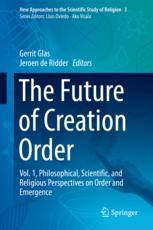

Most ebook files are in PDF format, so you can easily read them using various software such as Foxit Reader or directly on the Google Chrome browser.
Some ebook files are released by publishers in other formats such as .awz, .mobi, .epub, .fb2, etc. You may need to install specific software to read these formats on mobile/PC, such as Calibre.
Please read the tutorial at this link: https://ebookbell.com/faq
We offer FREE conversion to the popular formats you request; however, this may take some time. Therefore, right after payment, please email us, and we will try to provide the service as quickly as possible.
For some exceptional file formats or broken links (if any), please refrain from opening any disputes. Instead, email us first, and we will try to assist within a maximum of 6 hours.
EbookBell Team

5.0
78 reviewsThis work provides an overview of attempts to assess the current condition of the concept of creation order within reformational philosophy compared to other perspectives. Focusing on the natural and life sciences, and theology, this first volume of two examines the arguments for and against the beauty, coherence and order shown in the natural world being related to the will or nature of a Creator. It examines the decay of a Deist universe, and the idea of the pre-givenness of norms, laws and structures as challenged by evolutionary theory and social philosophy. It describes the different responses to the collapse of order: that given by Christian philosophy scholars who still argue for the idea of a pre-given world order, and that of other scholars who see this idea of stable creation order and/or natural law as redundant and in need of a thorough rethinking. It studies the particular role that reformational philosophy has played in the discussion. It shows how, ever since its inception, almost a century ago, the concepts of order and law (principle, structure) have been at the heart of this philosophy, and that one way to characterise this tradition is as a philosophy of creation order. Reformational philosophers have maintained the notion of law as ‘holding’ for reality. This book discusses the questions that have arisen about the nature of such law: is it a religious or philosophical concept; does law just mean ‘orderliness’? How does it relate to laws of nature? Have they always existed or do they ‘emerge’ during the process of evolution?